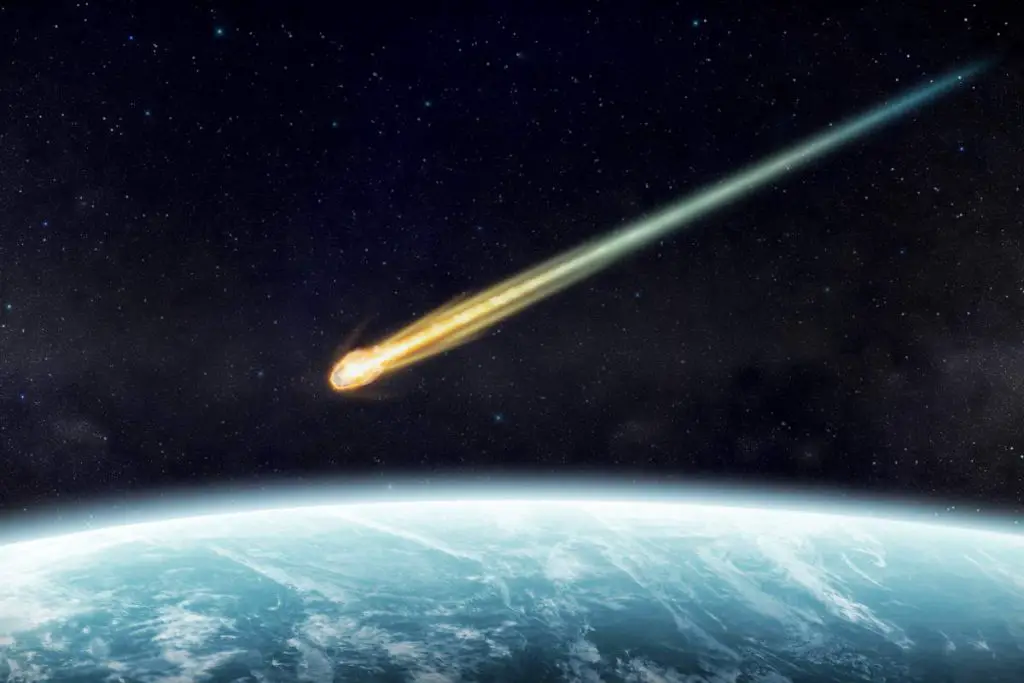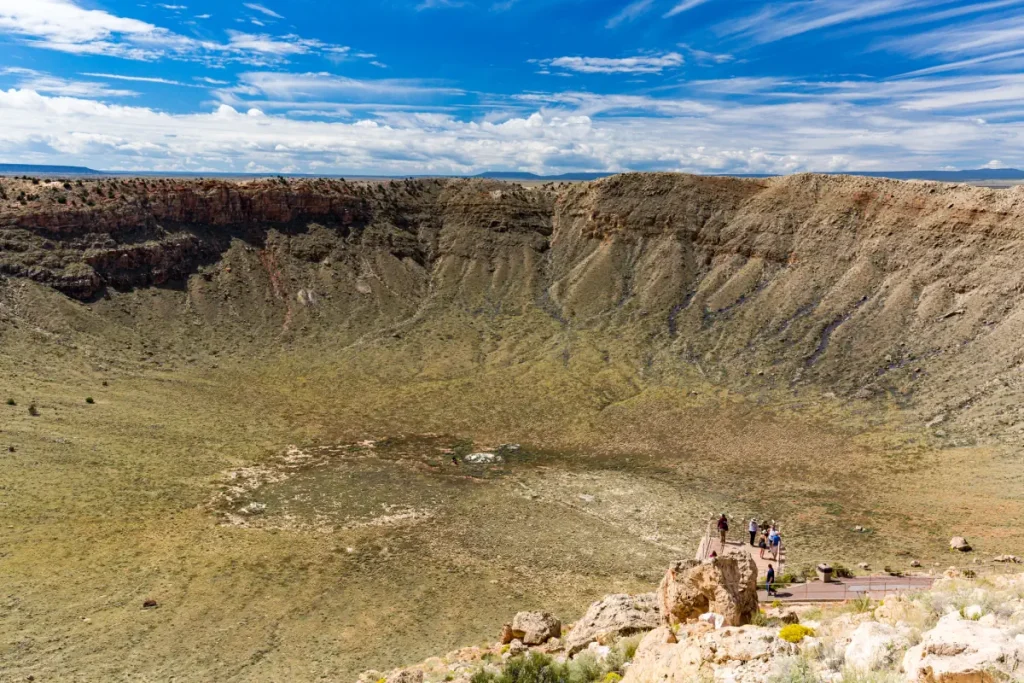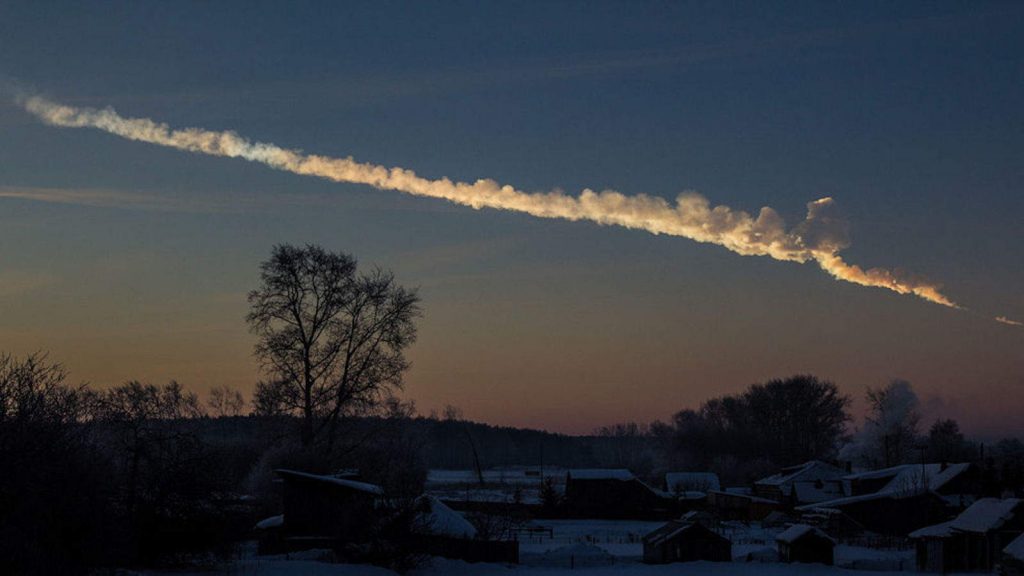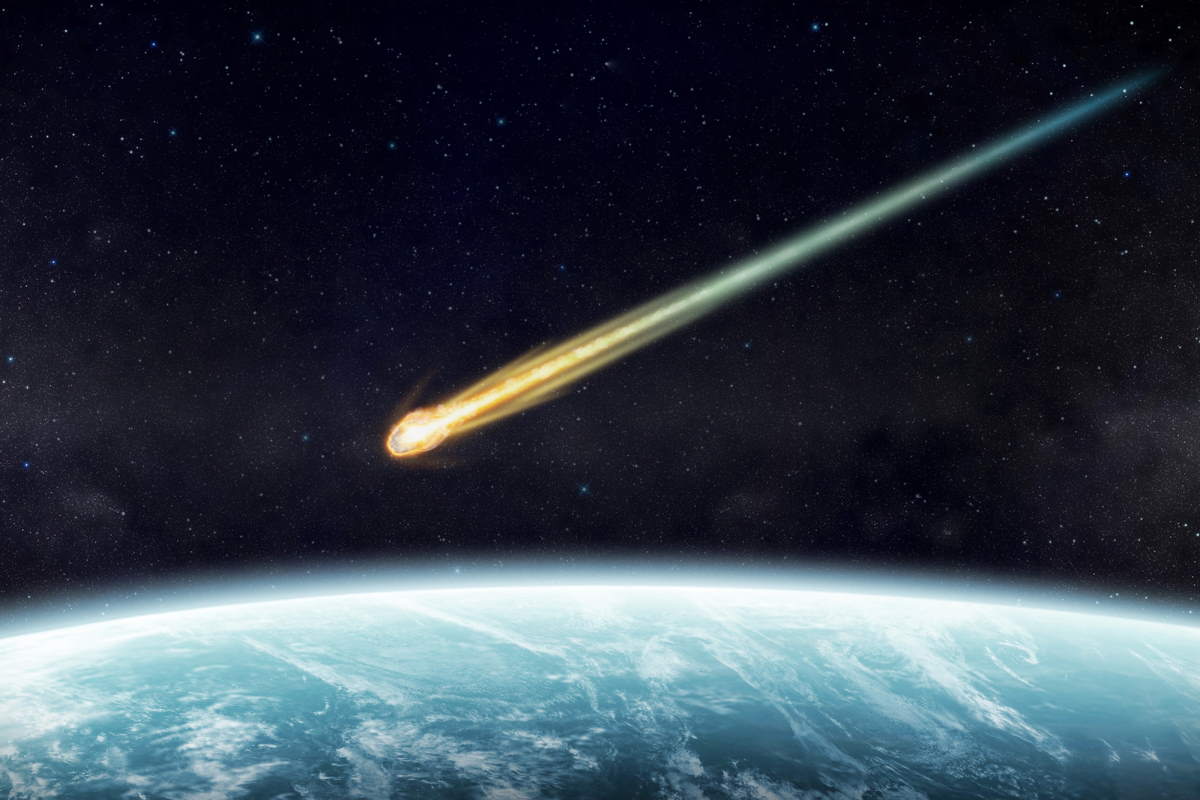When a meteoroid, a rocky or metallic body from outer space enters Earth’s atmosphere, it’s called a meteor. If it’s large enough, it can hit the Earth’s surface with enormous speed. It is then termed a meteorite. But, how fast do meteorites hit the ground?

Meteoroids, rocky or metallic bodies from outer space, enter the Earth’s atmosphere at very high speeds, ranging from 11 km/sec to 72 km/sec (25,000 mph to 160,000 mph or 40,000 km/h to 257,000 km/h).
For comparison, the International Space Station (ISS) orbits Earth at 7.66 km/s (about 17,000 mph / 28,000 km/h).
The fastest bullets travel at about 1,800 mph (2,900 km/h). So meteoroids (and, in general, celestial objects) are fast!
But, due to atmospheric drag, the meteoroid will rapidly decelerate as it penetrates into increasingly denser portions of the atmosphere.
Because of this atmospheric drag, if the meteoroid is small enough, it will not produce a meteor but will decelerate slowly enough to remain intact and then float gently to the Earth’s surface.
Most meteorites, ranging from a few kilograms up to about 8 tons (7,000 kg), will lose all of their cosmic velocity and after a certain point called the retardation point, they begin to accelerate again, under the influence of the Earth’s gravity (9.8 meters per second squared).
The meteorite will then quickly reach its terminal velocity of 200 to 400 miles per hour (90 to 180 meters per second or 320 to 640 km/h).
The terminal velocity (the maximum velocity attainable by an object as it falls through a fluid or air) occurs at the point where the acceleration due to gravity is exactly offset by the deceleration due to atmospheric drag.
But, if the meteoroid is large enough, some fraction of it will survive the ablative entry through the Earth’s atmosphere and land on the surface with enormous speed.
So, how fast do meteorites hit the ground?
According to astronomers, when a meteorite hit the Earth’s ground, the maximum theoretical impact speeds are:
- The estimated fastest impact speed of a near-Earth asteroid is 21 km/s (46,976 mph or 75,600 km/h).
- For a short-period comet, the maximum impact speed is estimated at 41 km/s (91,714 mph or 147,600 km/h).
- For a long-period comet, the fastest impact velocity is about 53 km/s (118,558 mph or 190,800 km/h).
With these very high speeds, meteorites can create huge impact craters when they hit the ground.

Scientists also estimate that the Chicxulub Impactor that killed the dinosaurs 66 million years ago (it was an asteroid or comet at least 10 kilometers / 6 miles in diameter) hit the Earth at around 17.7 km/s (40,000 mph or 64,000 kilometers per hour).
Fastest meteorite impact on record
On March 19, 2013, an impact occurred on the Moon that was visible from Earth, when a boulder-sized 30 cm (11.8 inches) meteoroid slammed into the lunar surface at 25 km/s (56,000 mph or 90,000 km/h) creating a 20-meter (66 feet) crater. This is the fastest meteorite impact on record.
Since there is no air on the Moon, nothing slowed the meteoroid down.

Sources
- Fireball FAQs on the American Meteor Society website
- Barringer Crater on Wikipedia
- Moon Landings: All-Time List [1966-2025] - February 2, 2025
- What Is Max-Q and Why Is It Important During Rocket Launches? - January 16, 2025
- Top 10 Tallest Rockets Ever Launched [2025 Update] - January 16, 2025
